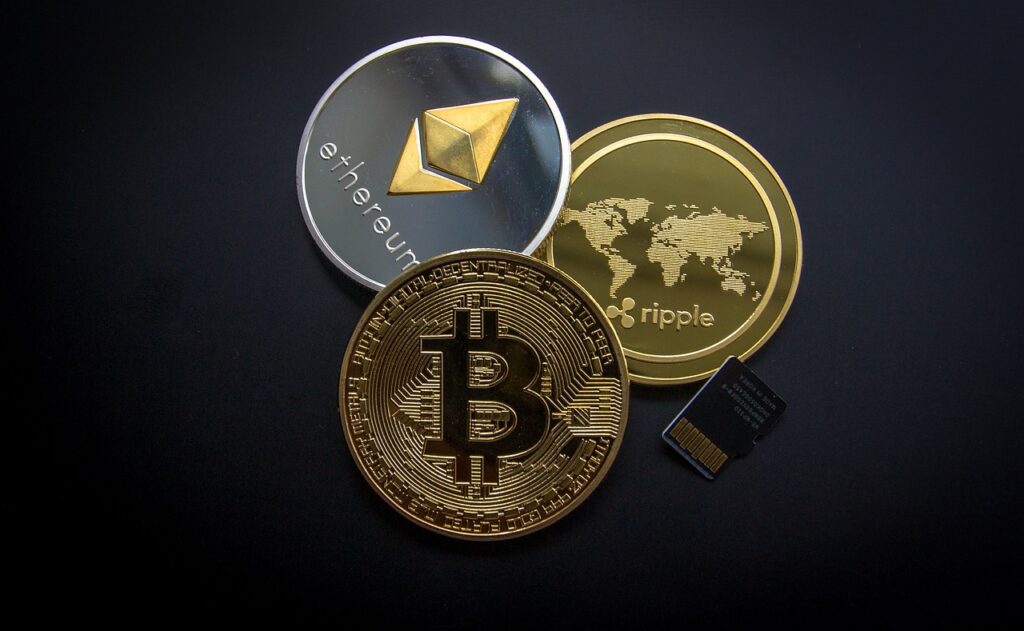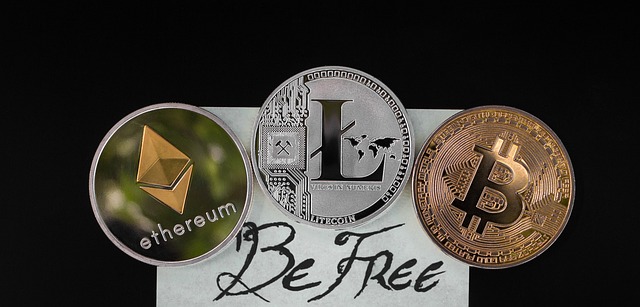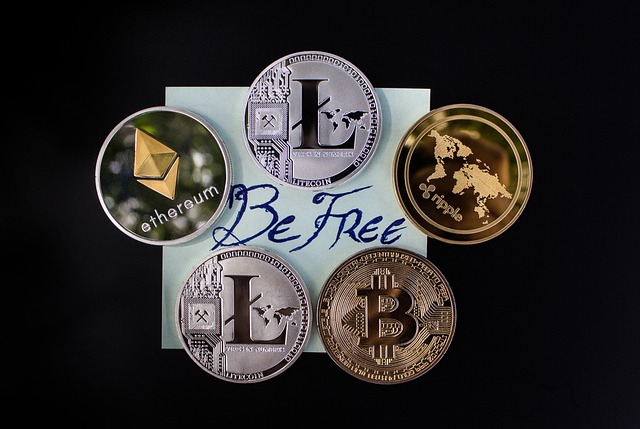The ABCs of DeFi: A Comprehensive Definition
The ABCs of DeFi: A Comprehensive Definition

What is DeFi?
DeFi, short for Decentralized Finance, is a groundbreaking concept that is revolutionizing the traditional financial system. Unlike traditional finance, where intermediaries like banks play a central role in transactions, DeFi aims to eliminate these intermediaries and create a transparent, open, and accessible financial ecosystem.
In simple terms, DeFi refers to a range of financial applications built on blockchain technology, specifically on smart contracts. These applications allow individuals to securely and directly interact with digital assets, borrow or lend money, trade cryptocurrencies, and participate in various other financial activities without the need for intermediaries. By eliminating the middleman, DeFi not only reduces costs but also increases financial inclusivity by providing anyone with an internet connection the opportunity to access and engage in these financial services.
How does DeFi work?
Decentralized Finance, or DeFi, is an emerging concept that aims to disrupt traditional financial systems and institutions by leveraging blockchain technology. Unlike traditional finance, which relies on intermediaries such as banks or brokerage firms to facilitate transactions, DeFi operates on a decentralized platform where transactions are executed directly between parties.
The heart of DeFi lies in the use of smart contracts, which are self-executing agreements built on blockchain networks like Ethereum. These contracts enable the automation of financial transactions without the need for intermediaries, making the process more efficient and transparent. By eliminating intermediaries, DeFi opens up a world of opportunities for individuals to access and use financial services, including lending, borrowing, trading, and investing, in a more inclusive and decentralized manner. These transactions are recorded on the blockchain and can be accessed by anyone, providing an unprecedented level of transparency and accountability.
Key components of DeFi
In order to understand how decentralized finance (DeFi) works, it is essential to be familiar with its key components. Smart contracts form the backbone of DeFi, as they are self-executing agreements that enable the automatic and transparent exchange of digital assets. These contracts operate on blockchain networks, such as Ethereum, and remove the need for intermediaries, making transactions more efficient and secure.

Another important component of DeFi is decentralized lending and borrowing platforms. These platforms enable individuals to lend their digital assets and earn interest, or borrow assets by providing collateral. By eliminating the need for traditional financial intermediaries, decentralized lending and borrowing platforms offer greater accessibility and transparency. They also typically employ over-collateralization and various risk management techniques to mitigate the risk of default.
With these key components in place, DeFi offers a wide range of financial services and innovations that were previously only available through traditional financial institutions. By leveraging smart contracts, decentralized exchanges, and lending and borrowing platforms, DeFi aims to revolutionize the financial landscape by providing more inclusive, efficient, and transparent solutions for individuals around the world.
Advantages of DeFi
Decentralized Finance, or DeFi, offers several advantages over traditional financial systems. Firstly, DeFi allows for greater financial inclusivity by providing access to individuals who may not have access to traditional banking services. This means that people from all walks of life, regardless of their location or economic status, can participate in various financial activities such as lending, borrowing, and investing. By eliminating the need for intermediaries like banks, DeFi empowers individuals to take control of their finances and make financial decisions that best suit their needs.
Moreover, DeFi also promotes transparency and security in financial transactions. Traditional financial systems often lack transparency, with the transactions and fees being veiled behind complex processes. On the other hand, DeFi operates on blockchain technology, which ensures transparency and immutability of transactions. All transactions and interactions are recorded on the blockchain, allowing anyone to trace and validate them. Additionally, DeFi protocols use smart contracts to automate and execute transactions, eliminating the potential for human error or manipulation. This enhanced security and transparency give users greater confidence in participating in DeFi, knowing that their funds and transactions are protected.
Challenges in the DeFi space
DeFi has undoubtedly revolutionized the financial sector, offering users unprecedented levels of financial freedom and accessibility. However, like any emerging technology, it comes with its fair share of challenges. One of the main challenges in the DeFi space is the issue of security. With the decentralized nature of DeFi platforms, the risk of hacks and vulnerabilities increases. Since transactions are conducted on the blockchain, any weakness in the smart contracts or code can be exploited, leading to the loss of funds. As the DeFi space grows at a rapid pace, it becomes crucial for developers and users to prioritize security and adopt robust auditing mechanisms to mitigate these risks.
Another challenge faced by the DeFi industry is scalability. While current DeFi platforms offer a range of services, including lending, borrowing, and yield farming, the surge in demand has resulted in congestion on the Ethereum blockchain, which is the most popular platform for DeFi applications. This congestion leads to high gas fees, delays in transactions, and limited access for users. Scaling solutions such as layer 2 protocols and alternative blockchains are being explored to address these scalability challenges and accommodate the increasing number of users and transactions.
In conclusion, while DeFi presents exciting opportunities, it also brings along its fair share of challenges. Security vulnerabilities and scalability issues pose obstacles to the widespread adoption of DeFi. However, as the industry evolves, steps are being taken to overcome these challenges and create a more secure and scalable DeFi ecosystem. By addressing these challenges, the DeFi space has the potential to reshape the traditional financial sector and empower individuals with greater control over their financial assets and transactions.
Popular DeFi platforms
Uniswap is one of the most popular DeFi platforms in the market. It is a decentralized exchange that operates on the Ethereum blockchain.

Another popular DeFi platform is Compound. It is a lending and borrowing protocol that enables users to earn interest on their crypto assets or borrow assets by providing collateral. Users can lend out their digital assets to other users and earn interest on their holdings, or they can borrow assets by locking up collateral. The interest rates on Compound are determined algorithmically based on supply and demand, making it an efficient and transparent lending platform.
These platforms have gained significant traction in the DeFi space due to their user-friendly interfaces, open-source nature, and ability to provide financial services without the need for intermediaries. They offer users the opportunity to participate in various financial activities in a permissionless and decentralized manner, making them attractive options for those seeking to explore the world of decentralized finance.
Risks associated with DeFi
While Decentralized Finance (DeFi) offers numerous potential benefits, it is essential to be aware of the risks involved. One of the primary risks in the DeFi space is smart contract vulnerabilities. Smart contracts are autonomous pieces of code that facilitate transactions and interactions within DeFi platforms. However, if not audited properly or if there are flaws in the code, attackers could exploit these vulnerabilities and siphon funds, leading to financial losses for users. Therefore, it is crucial to exercise caution and thoroughly evaluate the security measures implemented by the DeFi platforms before participating.
Another risk associated with DeFi is the potential for market volatility. DeFi platforms often operate in a highly volatile landscape, where prices of cryptocurrencies can fluctuate rapidly. This volatility can pose challenges for investors who may experience significant gains or losses within short periods. Additionally, due to the interconnected nature of DeFi platforms, a sudden crash or a hack in one platform can have a cascading effect on others, amplifying the risks. Therefore, it is crucial for individuals engaging in DeFi to carefully consider their risk tolerance and have a thorough understanding of the market dynamics before committing their funds.
Regulatory considerations for DeFi
When it comes to the world of decentralized finance (DeFi), there are several regulatory considerations that need to be taken into account. As DeFi platforms continue to grow in popularity and become more integrated into the traditional financial system, regulators are starting to pay closer attention to this emerging sector. One of the main challenges is that current regulatory frameworks were primarily designed for centralized financial institutions and may not be well-suited to address the unique characteristics and complexities of DeFi.
One key area of concern is the issue of investor protection. Unlike traditional financial intermediaries, DeFi platforms operate in a decentralized manner, making it difficult for regulators to track and scrutinize transactions. This lack of oversight raises questions about the safety and security of funds for investors. Additionally, the absence of clear guidelines and regulations can lead to potential market manipulation and fraudulent activities. It is therefore crucial for regulators to strike a balance between fostering innovation and ensuring adequate safeguards are in place to protect investors in the DeFi space.
Future trends in DeFi
Decentralized Finance (DeFi) has taken the financial world by storm, and it continues to evolve at a rapid pace. As we look ahead to the future, there are several key trends that are likely to shape the DeFi landscape. Firstly, interoperability is expected to become more prevalent. Currently, many DeFi platforms operate in isolation, but there is a growing need for them to seamlessly communicate and share information with one another. This would allow users to easily move assets and liquidity across different protocols, creating a more efficient and user-friendly experience.
Another significant trend in the future of DeFi is the rise of layer 2 solutions. With the increasing popularity of DeFi applications, the Ethereum network has become congested, resulting in high transaction fees and slower processing times. Layer 2 solutions, such as sidechains and state channels, offer scalability and improved performance by processing transactions off-chain before settling them on the main Ethereum network. This technology has the potential to greatly enhance the user experience and attract more participants to the DeFi ecosystem.
As the DeFi space continues to innovate and mature, these trends are likely to shape the future of decentralized finance. By fostering interoperability and implementing layer 2 solutions, the DeFi community is striving to create a more seamless and scalable financial infrastructure that can rival traditional centralized systems. It will be exciting to see how these trends unfold and what new possibilities they will bring to the world of DeFi.
• Interoperability is expected to become more prevalent in the future of DeFi
• Many DeFi platforms currently operate in isolation, but there is a growing need for them to seamlessly communicate and share information with one another
• This would allow users to easily move assets and liquidity across different protocols, creating a more efficient and user-friendly experience
• The rise of layer 2 solutions is another significant trend in the future of DeFi
• With the increasing popularity of DeFi applications, the Ethereum network has become congested, resulting in high transaction fees and slower processing times
• Layer 2 solutions such as sidechains and state channels offer scalability and improved performance by processing transactions off-chain before settling them on the main Ethereum network
• These trends are likely to shape the future of decentralized finance as it continues to innovate and mature
• By fostering interoperability and implementing layer 2 solutions, the DeFi community aims to create a more seamless and scalable financial infrastructure that can rival traditional centralized systems
• It will be exciting to see how these trends unfold and what new possibilities they will bring to the world of DeFi.
How to get started with DeFi
Investing in DeFi can be an exciting endeavor, but it’s important to approach it with caution and a solid understanding of the space. Here are two key steps to help you get started with DeFi:
Firstly, familiarize yourself with the concept of decentralized finance. DeFi, as it is commonly known, refers to the use of blockchain technology and smart contracts to recreate traditional financial systems in a decentralized and open manner. It enables individuals to access financial services without relying on intermediaries like banks, offering greater transparency, security, and control over one’s assets. To understand DeFi better, it is recommended to conduct thorough research, such as reading articles, participating in online discussions, and watching educational videos. This will help you grasp the fundamental concepts and gain insights into the latest trends in the DeFi space.
Once you have a good grasp of DeFi, the next step is to choose a reliable platform to get started. There are various popular DeFi platforms available today, each with its own unique features and offerings. It is crucial to select a platform that suits your specific needs and aligns with your risk tolerance. To make an informed decision, consider factors such as the platform’s security measures, user interface, available services, and the overall reputation in the industry. Additionally, it is advisable to start with a small amount of funds to familiarize yourself with the platform’s functionalities before investing a significant portion of your assets.

What is DeFi?
DeFi, short for Decentralized Finance, refers to the use of blockchain technology and smart contracts to create financial applications that are open, transparent, and accessible to everyone.
How does DeFi work?
DeFi works by utilizing smart contracts on blockchain platforms to automate and execute financial transactions without the need for intermediaries like banks or traditional financial institutions. This enables greater financial inclusivity and reduces costs.
What are the key components of DeFi?
The key components of DeFi include decentralized exchanges, lending and borrowing platforms, stablecoins, yield farming, liquidity mining, and decentralized insurance.
What are the advantages of DeFi?
Some advantages of DeFi include improved financial accessibility, lower transaction fees, increased transparency, and the ability to earn passive income through various DeFi protocols.
What are the challenges in the DeFi space?
The challenges in the DeFi space include security risks, smart contract vulnerabilities, scalability issues, regulatory uncertainties, and the potential for market manipulation.
Which are the popular DeFi platforms?
Some popular DeFi platforms include Uniswap, Compound, Aave, MakerDAO, Yearn.finance, and Synthetix.
What are the risks associated with DeFi?
Risks associated with DeFi include smart contract bugs, hacking attacks, price volatility, impermanent loss in liquidity provision, and potential loss of funds due to scams or fraudulent projects.
Are there regulatory considerations for DeFi?
Yes, regulatory considerations for DeFi are evolving, and different jurisdictions may have different rules and regulations regarding DeFi platforms and operations. It is important for users to stay informed and comply with local regulations.
What are the future trends in DeFi?
Some future trends in DeFi include the integration of traditional finance with DeFi, increased institutional adoption, enhanced user experience, and the emergence of new DeFi protocols targeting specific industries.
How can I get started with DeFi?
To get started with DeFi, you can research and choose a reliable DeFi platform, create a digital wallet to store your cryptocurrencies, fund your wallet with the desired assets, and then explore various DeFi protocols to participate in lending, borrowing, trading, or providing liquidity. It’s important to do thorough research, understand the risks involved, and start with small amounts to gain familiarity with the DeFi ecosystem.
Todays Featured Product:
Buy, exchange and grow your crypto securely with a Ledger hardware wallet, combined with the Ledger Live app. It’s never been easier to keep your crypto safe and accessible. Buy direct from Ledger.com and get todays Special Offers Here.




